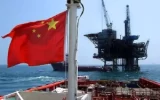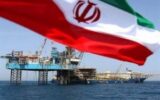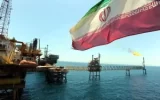
During the 12 days when Iran's skies were facing the Zionist regime's invasion and the imposed war, the oil industry worked in a chain reaction and did not tremble, but stood firm. It stood firm and did not let a single light go out or a shortage arise in the country's fuel supply.

China increased its crude oil imports from Iran in June, and independent Chinese refiners bought more Iranian oil.

Despite the conflict between Iran and Israel, contrary to the claims of the Zionist regime's media, Iran's oil exports not only did not decrease, but also remained at a level of about 2.2 million barrels per day, according to Kpler data.

The Strait of Hormuz, a vital artery for global energy exports, remains an irreplaceable bottleneck. Any disruption to the flow of oil through this route would alter the geopolitical equations of energy; despite efforts by countries to design alternative routes, none are able to cover the crisis.

Tracking agency Kpler reported that Iran's oil exports reached 2.2 million barrels per day.

According to data received from tanker trackers, China imported an average of 1.38 million barrels of oil per day from Iran in the first half of 2025, equivalent to more than 13.6 percent of the country's total oil imports.

A Russian official warned about the closure of the Strait of Hormuz that no one will be immune from this action.

Following the escalation of tensions between Iran and the United States, two super-heavy oil tankers named Coswisdom Lake and South Loyalty, each with a capacity to carry 2 million barrels of crude oil, changed their course near the Strait of Hormuz and retreated south.

The US attack on Iran's nuclear facilities and official participation in the Israeli operation is the largest military action by the West against Tehran since the 1979 revolution. Despite the renewed missile barrage by Iran on Israel, there has been no decisive response to the United States yet. However, the initial positive vote by the Iranian parliament to close the Strait of Hormuz has sounded the alarm bell for the global oil market.

The Governor of Khuzestan said: None of the oil facilities in this province have been damaged due to the attacks of the Zionist regime.










